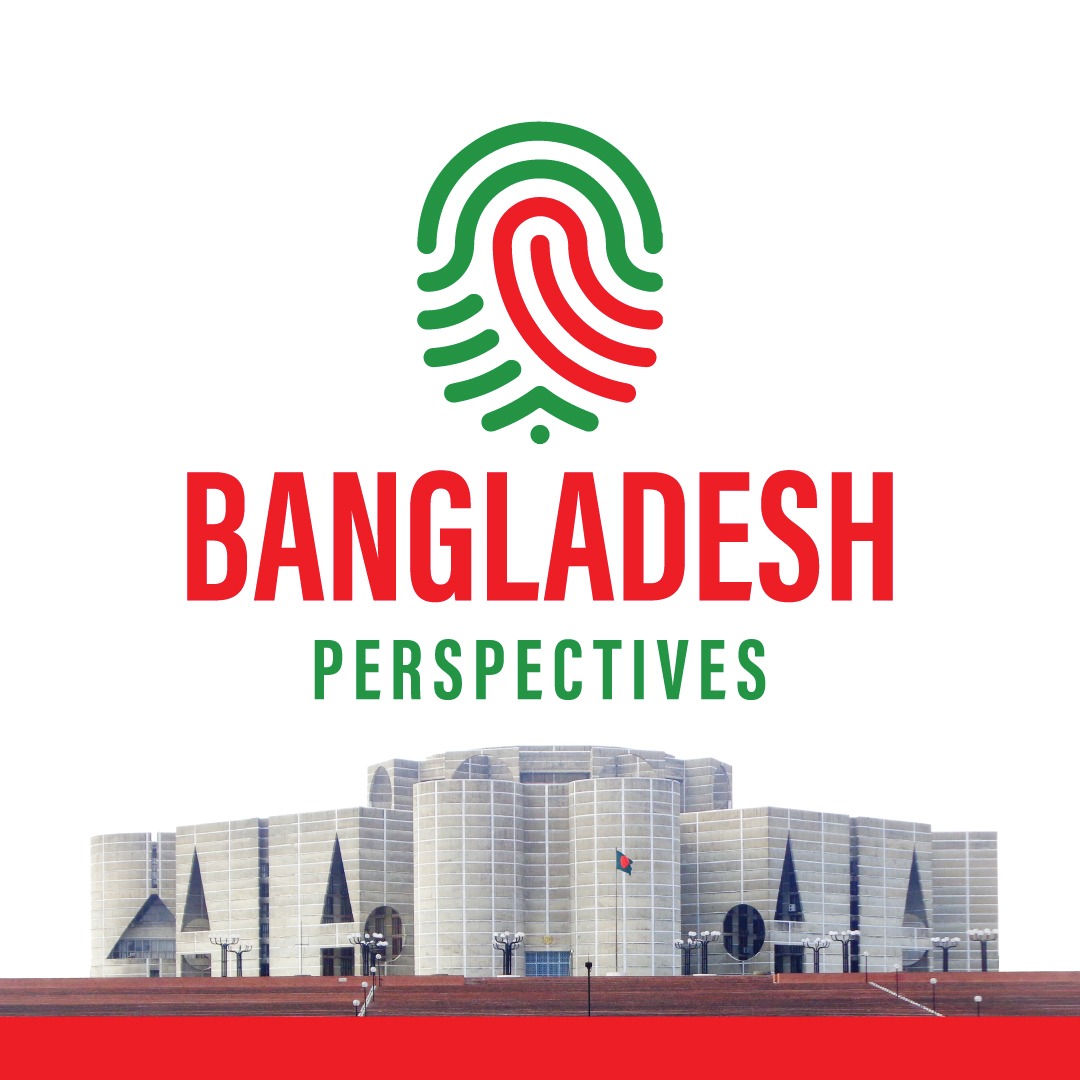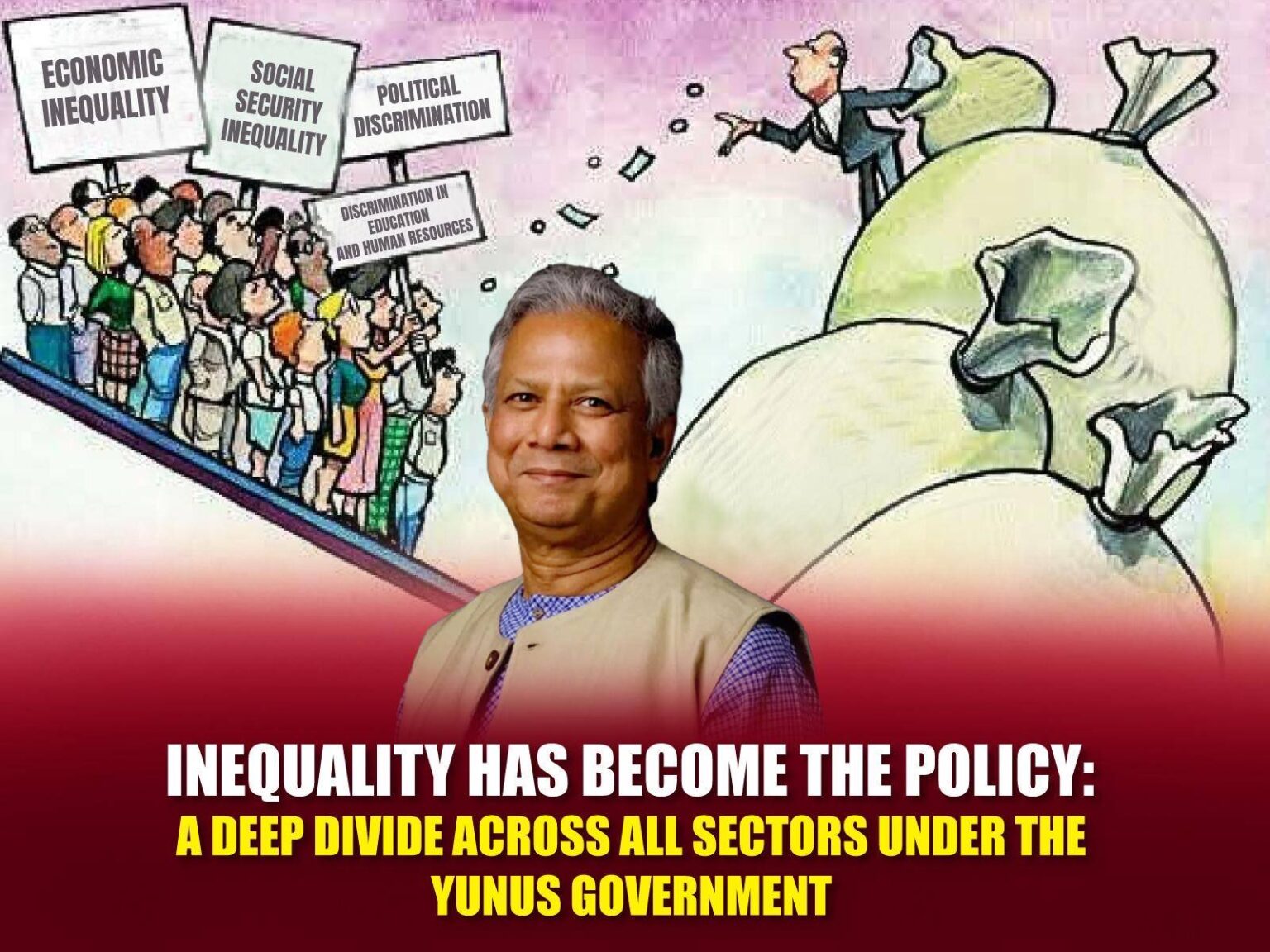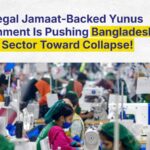During the tenure of the current interim government, inequality has taken on a visible and alarming form across every sector of Bangladesh. This disparity is not confined to politics alone — it has spread deeply into the economy, administration, education, and social welfare systems. The policies and actions of the government led by Dr. Muhammad Yunus reveal that political loyalty and personal connections have now replaced merit and competence as the main criteria in state affairs.
Political Discrimination: The Most Visible Form
Political inequality has become the most apparent. From recruitment to promotions in public service, political identity now determines the outcome. Those who believe in the ideals of the Awami League or in the spirit of the Liberation War are often denied opportunities, while supporters of the ruling side find doors opened easily before them. As a result, administrative neutrality is eroding, and the policy-making process of the state is becoming fragmented.
Economic Inequality: A Deeper Divide
The economic sector shows an even deeper disparity. In public projects, grants, loans, and investments, party loyalty has become the key determinant. Genuine entrepreneurs and skilled citizens are being deprived of opportunities, while state benefits are concentrated in the hands of a select few. This situation threatens to cause long-term damage to economic growth and investment confidence in the country.
Discrimination in Education and Human Resources
The impact of inequality is also evident in education and human resource development. During Sheikh Hasina’s government, the freedom fighter quota was abolished in the spirit of fairness and equality. However, under the current administration, quotas and other privileges are being distributed based on political allegiance. Favoritism is visible in promotions, appointments, and academic opportunities alike. This trend undermines the nation’s sense of justice and the social consciousness built on equality.
[Inequality Has Become the Policy: A Deep Divide Across All Sectors Under the Yunus Government]
A Systematic Strategy, Not a Mere Weakness
This inequality is not merely an administrative flaw — it appears to be a deliberate strategy designed to strengthen the influence of a particular support group. Yet, the foundation of a strong state lies in equal opportunity and justice for every citizen. Only when the state upholds equal dignity for all can democracy, stability, and public trust truly flourish.
Losing the Ideals of Liberation
The spirit of independence and the Liberation War taught us that the state exists for the people — to uphold their dignity and justice. But today’s reality suggests that those ideals are being lost at the desks of bureaucracy. When inequality becomes the rule of governance, democracy is reduced to a mere word — spoken, but not practiced.
A Call for Equality and Justice
The people of Bangladesh now seek equal opportunity, fairness, and transparent governance. If this growing trend of inequality continues, the nation’s stability, public confidence, and social harmony will be in grave danger. The fundamental duty of the state is to protect the people’s trust and dignity — and today, that duty stands as the government’s greatest challenge.





